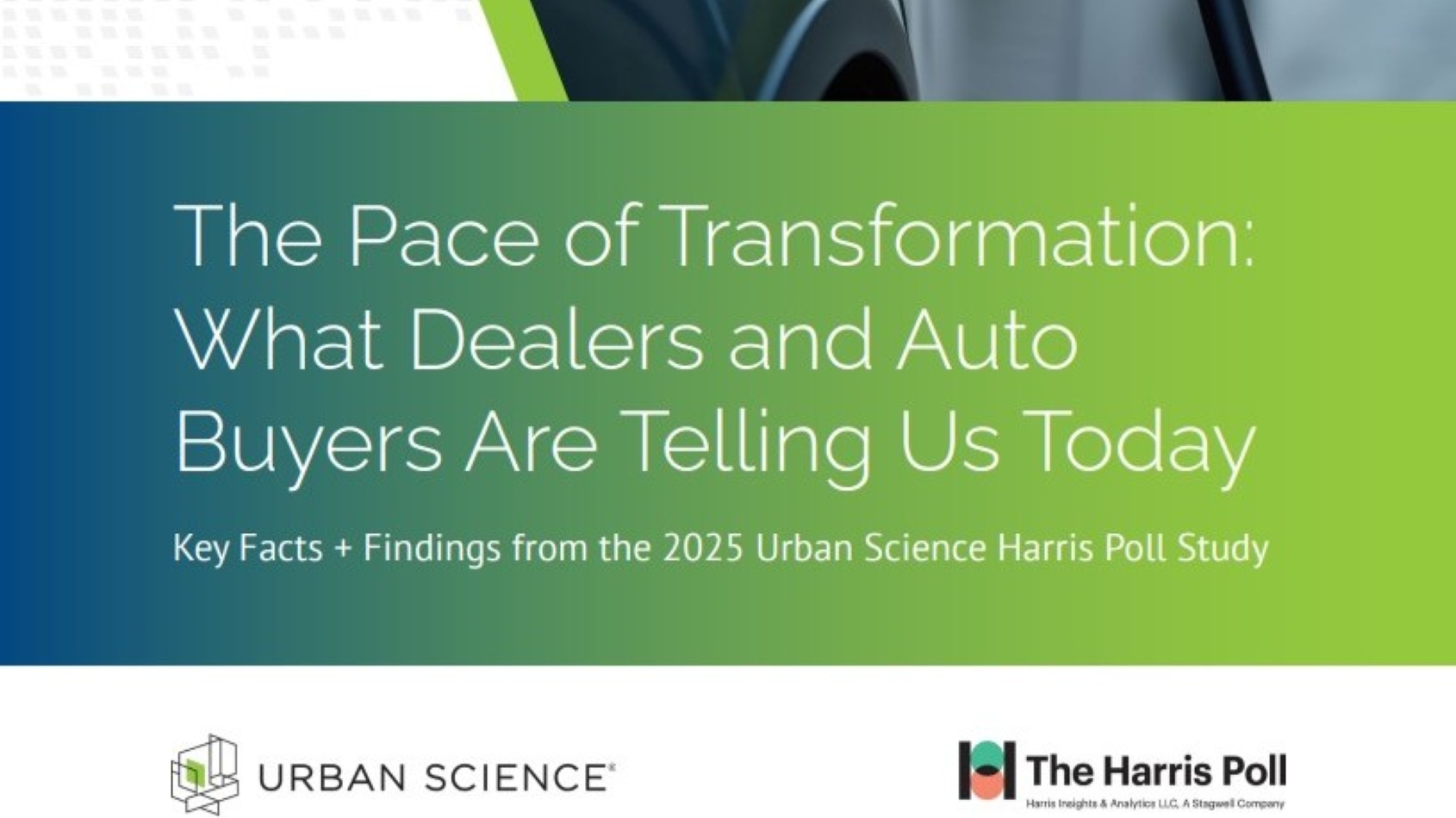Survey finds disconnect between dealers’ and car buyers’ vision of the future

Image courtesy of Urban Science.
By subscribing, you agree to receive communications from Auto Remarketing and our partners in accordance with our Privacy Policy. We may share your information with select partners and sponsors who may contact you about their products and services. You may unsubscribe at any time.
Car dealers and car buyers both share a strong interest in the future of the auto retail business.
But according to the latest research from automotive consulting and technology firm Urban Science and The Harris Poll, they have widely differing ideas about what that future will look like.
For example, the 2025 Urban Science Harris Poll Study found 61% of dealers strongly agree that traditional car dealership model — with sales, service, parts and body shops under one roof — is completely optimized for the marketplace of the future. That’s up 13 percentage points from the 2024 poll and is almost double what dealers said in 2023.
On the other hand, just 37% of car buyers strongly agreed with that statement, down from 38% last year. The 24-point gap between those groups — the largest in the five years the study has been conducted — is more than double that of 2024 and six times wider than in 2023.
The difference was even more stark on the subject of electric vehicles. Looking down the road, 91% of dealers believe the public will be ready for EV-only buying options by 2040, consumers were much less certain, with 47% agreeing while 48% said they might never be ready for an all-EV world.
The surveys of more than 5,000 adults who own a vehicle or are planning to buy one in the next 12 months — 3,026 of them in the U.S. — and 254 U.S. franchise dealers was conducted in January. The report on the survey results, titled “The Pace of Transformation: What Dealers and Auto Buyers Are Telling Us Today”, said a May follow-up survey of 1,844 auto buyers found 32% of the consumers said they were less likely to purchase an EV as a result of the Trump Administration’s planned policies.
Subscribe to Auto Remarketing to stay informed and stay ahead.
By subscribing, you agree to receive communications from Auto Remarketing and our partners in accordance with our Privacy Policy. We may share your information with select partners and sponsors who may contact you about their products and services. You may unsubscribe at any time.
“Dealer confidence in EVs likely stems from the continued push by manufacturers to expand all-electric lineups and honor longstanding electrification targets,” the report said. “With vehicles already in production or on lots, dealers are more likely to focus on moving inventory and aligning with OEM direction than reacting to short-term policy signals.”
One area both dealers and consumers could agree on was the biggest concern in the current auto retail landscape: affordability.
It was by far the top choice among car buyers, cited by 64% of them. In fact, their top three choices were cost-related, with cost of vehicle insurance second at 52% and cost of vehicle service third at 47%. Among dealers, affordability tied for the No. 1 spot with economic factors at 40%, followed by vehicle insurance costs (37%).
The report said consumers’ affordability concern still ranked first in the May follow-up survey, but it cooled slightly, dropping to 56%. It was again followed by the costs of insurance (42%) and service (38%), which were also lower, “suggesting a slight uptick in buyer confidence.”
The May survey pointed out another gap between dealers and consumers, as 33% of dealers listed the elimination of the EV tax credits as a concern, fourth on their list, while it barely registered for car buyers at 16%, ranking eighth among the nine factors listed.
It also showed the effects of tariffs on consumer behavior, with 67% saying they have changed their car-buying plans or experienced higher costs because of the tariffs. Some 23% said they are more likely to buy a vehicle manufactured in America and 21% said they’ve delayed a purchase because of tariff concerns, while 22% said they paid more for the vehicles and 20% saw increased vehicle service costs.
The full report can be downloaded here.


